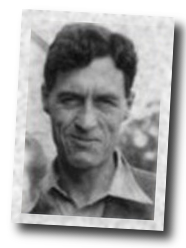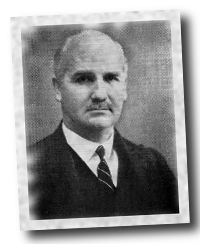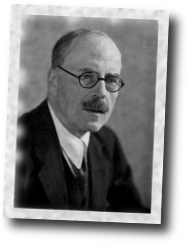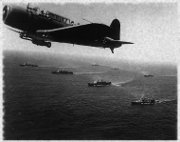Influential People
These are people who played a significant role in the story of the fight against the U-boats.
Patick Blackett
 Patrick Blackett was born on the 18th of November 1897 in London, England. He is well known as the ‘father of Operational Research’ due to his being an influential member of the Tizard Committee on Air Defence, and his critical work on creating OR sections throughout the military after 1940.
Patrick Blackett was born on the 18th of November 1897 in London, England. He is well known as the ‘father of Operational Research’ due to his being an influential member of the Tizard Committee on Air Defence, and his critical work on creating OR sections throughout the military after 1940.
He mainly led the campaign against the U-boats in the North Atlantic; and it is this he is remembered for. He has also written papers based on his work with the Coastal Command, all of which now are highly regarded. His ideas had a huge impact upon the USA and the OR within the American forces after Pearl Harbour.
After the war, he received the Nobel Prize for Physics in 1948 for his work on atomic physics and cosmic rays. He died on the 13th July 1974 in his hometown of London.
F.A. Lindemann, Lord Cherwell
 Lord Cherwell was born on the 5th of April 1886 in Baden-Baden, Germany. As the start of the Second World War loomed he was hugely disconcerted with the inadequate efforts made in the field of air defence, and pressed for a committee to investigate this. He was, at the time, unaware of the Tizard Committee on Air Defence which had already been established.
Lord Cherwell was born on the 5th of April 1886 in Baden-Baden, Germany. As the start of the Second World War loomed he was hugely disconcerted with the inadequate efforts made in the field of air defence, and pressed for a committee to investigate this. He was, at the time, unaware of the Tizard Committee on Air Defence which had already been established.
Winston Churchill (on whom Cherwell's influence had always been apparent) and Cherwell were not convinced by this existing committee, and pushed again for a sub-committee within the Committee of Imperial Defence. Although Cherwell and Tizard both became members of this sub-committee, it's powers were limited. Churchill insisted Cherwell be able to join the existing Tizard Committee.
Here, Cherwell treated everyone and their ideas with extreme criticism and hostility. Relationships between him and the other members of the committee suffered; and all members other than Cherwell resigned from the committee, unable to manage his manner of working. The committee however then re-constituted four months later, without Cherwell as a member.
Cherwell then became Churchill's personal advisor. During the war, the pair made many decisions which have been continuously criticised. In 1953 Cherwell was created a viscount. He died in his sleep in Oxford, England on the 3rd of July 1957.
Sir Henry Tizard

Sir Henry Tizard was born on the 23rd August 1885 in Kent, England. He wanted to join the Navy at the beginning of his career, but was turned away because of his poor eyesight. He then went to Oxford to study Mathematics and Chemistry.
At the start of the First World War however his eyesight had ‘magically improved’ and he worked for the military after that point. In 1933 he was appointed chairman of the Aeronautical Research Committee where he served for most of the Second World War. He had a huge input into the development of radar in the run up to the war.
He was also head of the Tizard Committie which was formed in 1935. In 1940 he had a top-secret conference with Churchill which involved his opposition to a suggestion being overruled. This action encouraged the beginning of the ‘Tizard Mission’ - a mission led by Tizard to unite the USA and Britain in their studies of war based operational research, science and technology.
He received the Franklin medal for his efforts in 1946, and after the war held his post as Chief Scientific Advisor for the Ministry of Defence from 1948 - 1952. He died on the 9th of October 1959 in Hampshire, England.

